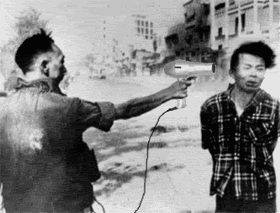Posted 13 January 2009 - 23:17
The emphasis on the reconstruction of the Russian Armed Forces following their near-disintegration in the mid-90s has definitely been on the resurrection and rejuvenation of their nuclear triad. They still maintain a strategic bomber force that is nearly the equal of the United States' in some areas, and are constantly upgrading it with new missiles such as the Kh-555, Kh-101 and Kh-102, all of which can be nuclear-armed. Their still-gigantic fleet of 162 Tu-22M3 ('Backfires') has the Kh-22M and Kh-32 missiles which would make a naval incursion into the Barents Sea in a war with Russia effectively suicide for almost any opponent, and they are continuing the production and modernisation of the Tu-160 ('Blackjack'), which gives them almost unmatched nuclear standoff capability. Meanwhile, the Topol-M and brand-new RS-24 are slowly replacing the R-36M (SS-18 'Satan') and remaining UR-100NUTTH (SS-19 'Stiletto' Mod 3) ICBMs, adding evasive systems and missile defence countermeasures to ensure that despite conventional parity a war with Russia would still be playing dice with Earth. Bulava and Sineva, the new missile complexes for their sea-bound deterrent, have come last, mostly because a ballistic missile submarine is astronomically more expensive than any other deterrent platform. Sineva is replacing the missiles currently aboard the Project 667BDR/BDRM Kalmar & Delfin ('Delta III/IV-class') submarines, and has so far had a near-flawless track record. Bulava, the Topol-M development for the new Borei-class, has run into difficulties as mentioned above, though, which is slowing the deployment of actual new platforms.
Still, with every element of their nuclear triad receiving a massive update, you can see how seriously Russia takes their deterrent forces. This is partly why 'unconventional' programs such as ABM, lasers, and other such systems that were highly emphasised just before the breakup of the Soviet Union, have virtually disappeared - all the funding is going into offensive missile programs instead.
Quote
"Working together, we can build a world in which the rule of law — not the rule of force — governs relations between states. A world in which leaders respect the rights of their people, and nations seek peace, not destruction or domination. And neither we nor anyone else should live in fear ever again." - Wesley Clark



















